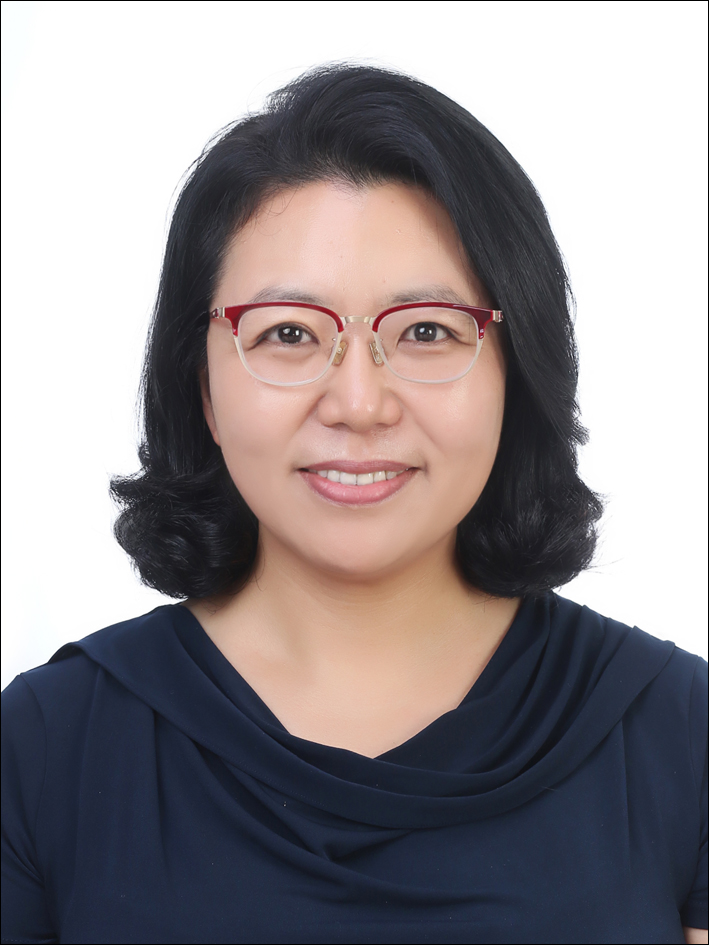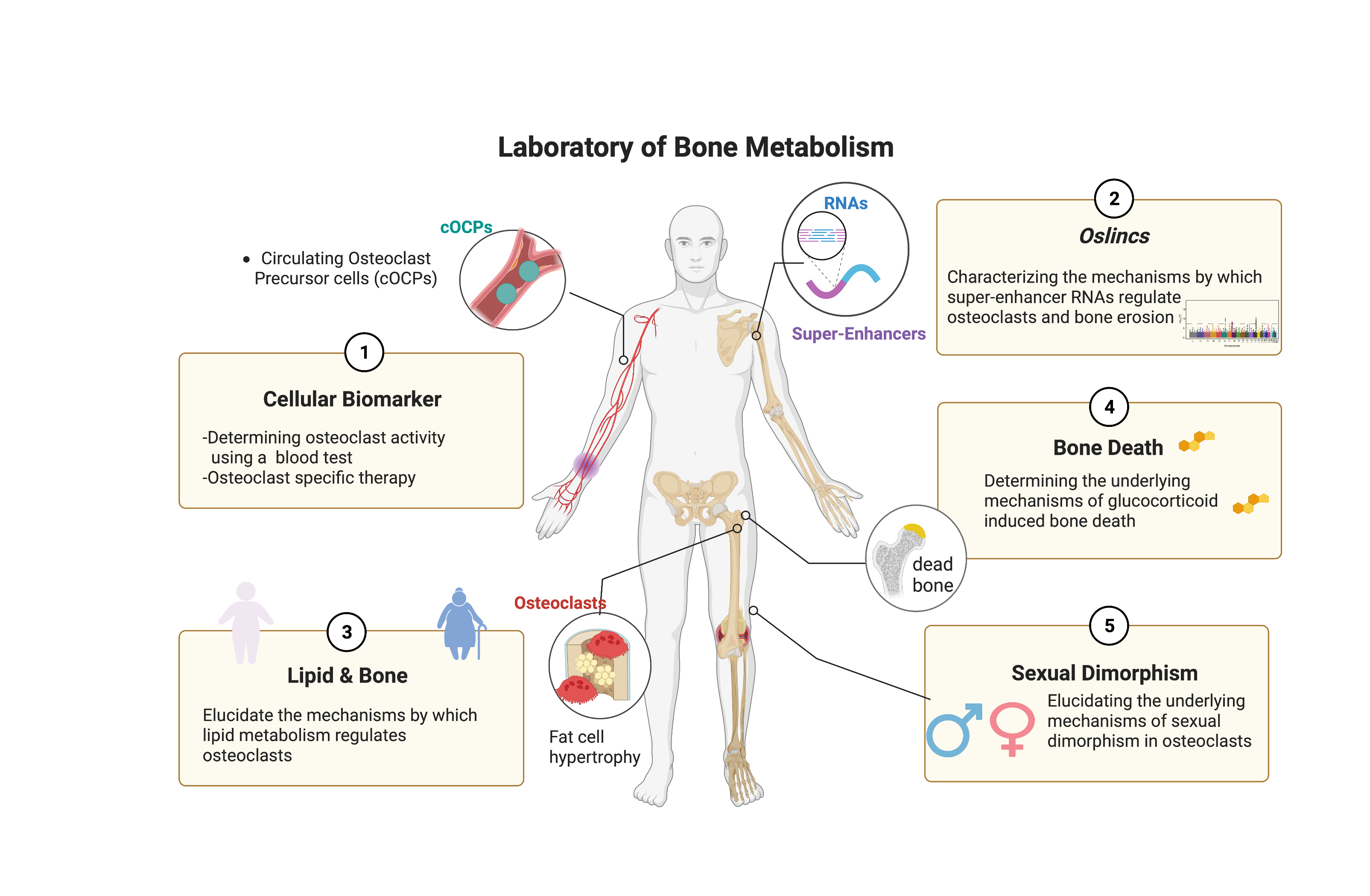
Research
Osteoclasts are the sole bone resorbing cells, and dysregulation of osteoclasts contributes to metabolic bone diseases and inflammatory bone destruction. Osteoclasts are thus of great therapeutic importance to nearly all forms of bone diseases. However, how pathogenic osteoclasts are formed and regulated remains insufficiently understood. The Park-Min lab focuses on investigating new molecular, epigenetic, genetic, and metabolic mechanisms governing the activity of osteoclasts in physiological and pathological settings and uncovering the underlying mechanism of hyperactive osteoclasts in pathological conditions such as osteoporosis, rheumatoid arthritis, osteonecrosis, and inflammatory osteolysis. The lab addresses this by applying cutting edge cellular and molecular techniques, including genome-wide sequencing, and using human disease samples and various mouse models to accomplish basic and translational research. The Park-Min lab recently defined Oslincs, osteoclast-specific enhancer RNAs which control osteoclast formation. The lab currently studies how Oslincs modulate target genes and how changes in Oslincs occur in patients with bone diseases. The Park-Min lab also identified a new circulating cellular biomarker that correlates with bone density and osteoclast activity and currently is utilizing this marker to determine high risk individuals of bone loss. This marker will also be a therapeutic target for blocking hyperactive osteoclast formation. Another area of the lab’s research is osteoimmunology, an interdisciplinary field between bone biology and immunology. Women on average achieve a lower peak bone mass than men and exhibit higher fracture risk than men. The lab studies how sex differences in bone between males and females are regulated by the interplay between the immune and musculoskeletal systems. The Park-Min lab’s research expands our understanding of bone loss and abnormalities in metabolic bone diseases.
Figure 1

Current Projects:
- Osteoclast-specific epigenetic and metabolic regulation
- Osteoclast precursor cells in metabolic diseases
- Altered bone cells in bone death (AVN)
- Sexual dimorphism in osteoclasts
- Regulatory pathways in osteoclasts
Bio
Park-Min graduated with a Bachelor’s of Science in genetic engineering from Korea University in Seoul, South Korea. In 2007, she obtained her Ph.D in Immunology from the Weill Cornell Graduate School of Medical Sciences under the mentorship of Dr. Lionel Ivashkiv. Park-Min joined the Hospital for Special Surgery as assistant scientist and was simultaneously appointed as assistant professor of immunology in 2014 at the Department of Medicine, Weill Cornell Medical College. Since 2019 Park-Min has been serving as a faculty member of WCGS. Park-Min is now an associate scientist at the Hospital for Special Surgery and an associate professor at Weill Cornell Medical College.
Distinctions:
- Cancer Research Institute predoctoral fellowship
- Arthritis Foundation postdoctoral fellowship
- K99/R00 NIH pathway to independence award
- Nancy Dickerson Whitehead research fellowship
